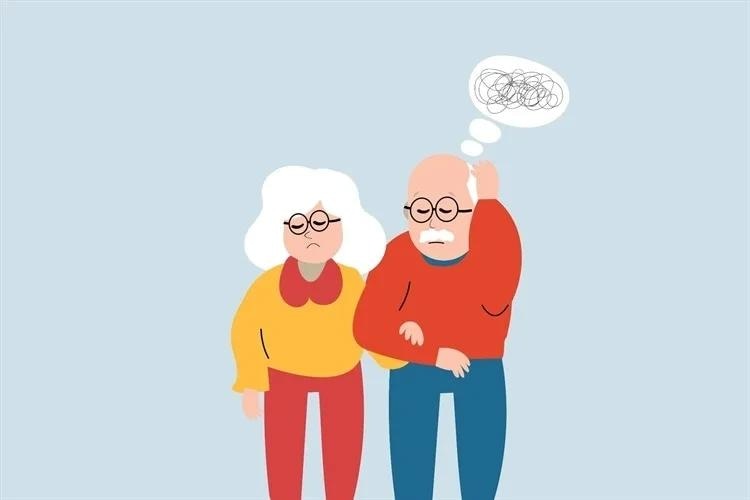In a current examine printed in Journal, the researchers examined the correlation between the usage of listening to aids and the chance of creating dementia.
Examine: Picture Credit score: SalimHanzaz/Shutterstock.com
Background
Each listening to loss and dementia are frequent in older adults. Utilizing listening to aids to deal with listening to loss in middle-aged or older people might probably decrease the chance of dementia.
The influence of listening to help use on lowering the chance of dementia in real-world conditions is unsure, regardless of research indicating that it could actually improve cognitive perform and cut back cognitive decline.
A few examine
Within the current examine, researchers investigated the hyperlink between listening to help utilization and the probability of creating cause-specific and all-cause dementia.
UK Biobank is a cohort examine that enrolled greater than 500,000 volunteers aged between 40 years and 69 years from 2006 to 2010. A questionnaire was used to collect information on listening to loss and listening to help utilization.
The participant’s listening to standing was decided via a self-reported query that requested, “Do you expertise any listening to difficulties?” Customers can reply with “no”, “sure”, or “I’m fully deaf”.
The listening to loss standing was divided into two classes: these with out listening to loss and people with listening to loss. The examine gathered info on the utilization of listening to aids via a self-reported query that requested members in the event that they used a listening to help typically, with the choice to reply “sure” or “no”.
Beginning in 2009, UK Biobank members have been surveyed about their use of listening to aids. Deaf members have been categorized as a part of the group together with people with listening to loss who didn’t use listening to aids, with out being questioned about their use of listening to aids.
Dementia diagnoses have been decided via hospital inpatient data in addition to demise register information. The examine measured incident all-cause dementia as the end result variable, which included subtypes equivalent to Alzheimer’s illness, non-Alzheimer’s illness, nonvascular dementia, and vascular dementia.
Outcomes
Nearly 437,704 people have been included within the analyses. The examine concerned members with a imply age of 56.0 years, consisting of 235,249 females and 202,455 males at baseline. The common size of follow-up was 12.1 years.
There have been 325,882 members with out listening to loss and 111,822 with listening to loss. Roughly 13,092 people with listening to loss utilized listening to aids.
Listening to loss was extra prevalent in males than girls and elevated with age. People that suffer from weight problems, loneliness, depressed temper, and heart problems usually tend to expertise listening to loss and use listening to aids.
People who had listening to loss however didn’t use listening to aids have the next probability of creating all-cause dementia compared to these with out listening to loss whereas utilizing listening to aids didn’t report elevated danger.
The proportion of dementia danger amongst folks with listening to loss who didn’t use listening to aids was virtually 29%. Related findings have been noticed for correlations with dementia subtypes. The examine discovered that there have been no important variations between women and men within the outcomes of stratified analyses.
Nonetheless, the attributable danger proportions for various dementia varieties for listening to loss with out utilizing a listening to help have been increased amongst females than in males.
The examine discovered that mediators performed a task within the relationship between dementia and listening to help utilization. Particularly, 1.52% of the affiliation was attributed to improved social isolation, 2.28% to improved loneliness, and seven.14% to improved depressed temper.
Vital interactions have been noticed for dementia, training, smoking, earnings stage, heart problems, and APOE e4 allele standing. Moreover, dementia was discovered to be extra prevalent in high-risk teams.
People with listening to loss who didn’t use listening to aids had the best danger throughout most interplay variables, whereas those that used listening to aids had decrease to no danger will increase in comparison with people having no listening to loss.
Two APOE e4 alleles have been linked to increased dementia danger and didn’t present important danger variations throughout listening to loss and listening to help utilization.
Conclusion
The examine findings confirmed that people with listening to loss have a 42% increased danger of creating dementia in comparison with these with regular listening to. As much as 8% of dementia instances may very well be prevented with listening to loss administration, highlighting the necessary want to deal with this problem.
Utilizing listening to aids was linked to the same danger of dementia as people with out listening to loss. Additional highlighting a necessity to raised our listening to loss administration.
Associations have been present in cause-specific and all-cause dementia subtypes. Medical trials are needed to guage the influence of listening to help utilization on dementia danger.
The position of assorted sorts of listening to aids and the period of their use in stopping dementia in listening to impairment additionally must be decided.
Journal reference:
-
Jiang, F., Mishra, S.R., Shrestha, N., Ozaki, A., Virani, S.S., Vivid, T., Kuper, H., Zhou, C. and Zhu, D., 2023. Affiliation between listening to help use and all-cause and cause-specific dementia: an evaluation of the UK Biobank cohort. The Lancet Public Well being. doi:
